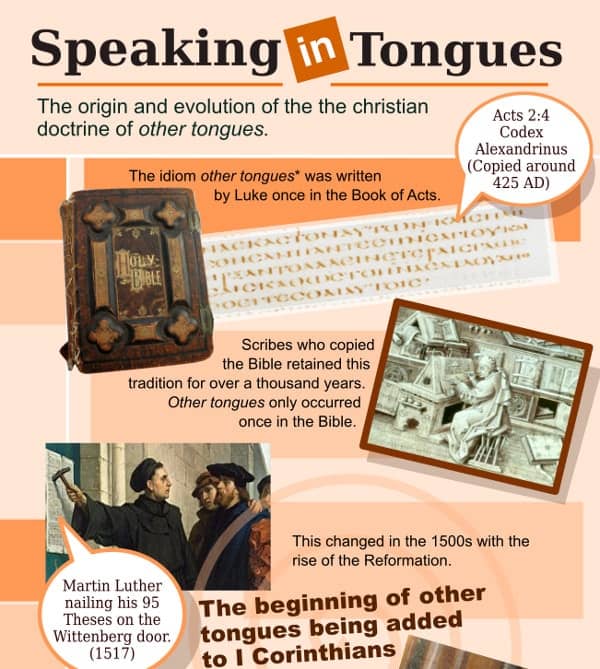Finding an acceptable solution for the Greek keyword glôssa γλῶσσα and why Christian doctrine of tongues is the best catch-phrase for the subject.
Glôssa is pivotal for the doctrine of tongues. This word is found in Paul’s address to the Corinthians and Luke’s description of the first Pentecost. This noun is further used by later Greek ecclesiasts and authors on the subject.
The challenge is how a contemporary researcher is to translate this word without a modern bias.
